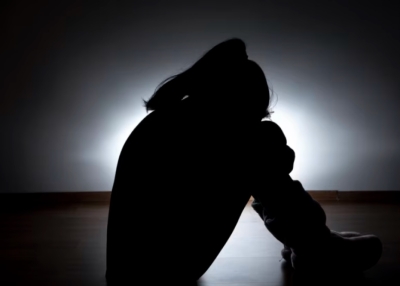NEW YORK, Feb 7 ― Is mental well-being the public health care challenge of the 21st century? A diagnosis has been made, and study after study appears to reinforce it. Much of the population around the world is suffering, and young generations seem to be particularly affected. A new report estimates that 293 million children, teenagers and young adults aged 5 to 24 worldwide ― or one in ten young people ― are living with a mental disorder.
There’s an “urgent need to transform mental health and mental health care.” These are the words that the World Health Organisation (WHO) used to present a report on the mental health of the world’s population in June 2022. The health authority, which at the time estimated that nearly one billion people ― including 14 per cent of adolescents ― were living with a mental disorder in 2019, urged “mental health decision makers and advocates to step up commitment and action to change attitudes, actions and approaches to mental health, its determinants and mental health care.” Two years on, the situation remains alarming, at least in terms of the data published at global level.
A team of university researchers based in Canada and Brazil has studied the subject to provide a new overview of the situation specifically focused on children and adolescents. Published in the journal JAMA Psychiatry, their findings warn that “the period from childhood to early adulthood involves increased susceptibility to the onset of mental disorders.” Among the key findings of this study, which is based on data from the 2019 Global Burden of Disease (GBD) survey, is “a high prevalence of mental disorders affecting children and youths.”
Advertisement
More than one in ten people aged 5 to 24, or 293 million individuals, live with a diagnosable mental disorder worldwide. “Around one-fifth of all disease-related disability (considering all causes) was attributable to mental disorders among this population. Additionally, this age period encompasses about one-fourth of the mental disorder burden across the entire life course,” the study states. Some 31 million children and adolescents suffer from a substance use disorder. The average prevalence of mental disorders is estimated at 6.8 per cent for 5-9-year-olds, 12.4 per cent for 10-14-year-olds, 13.96 per cent for 15-19-year-olds, and 13.63 per cent for 20-24-year-olds.
‘We are betraying our children’
The study’s findings echo a report recently published by The Academy of Medical Sciences, which calls for “urgent action” to address “failing child health” in the UK. The child health experts behind the work point to “major health issues,” including infant mortality, obesity, and dental health, and estimate the cost of inaction on children’s health to be at least £16 billion (over RM96 billion) a year.
Advertisement
Among the major findings of that work is a drop in infant survival rates, now “worse than in 60 per cent of similar countries,” as well as a tripling in the number of children living in extreme poverty between 2019 and 2022, a surge in demand for children’s mental health services, and the fact that more than a fifth of children aged 5 are overweight or obese. Another finding is that vaccination rates have plummeted, to the point where they are now below the World Health Organisation’s safety thresholds, say the authors.
“Every child has the right to a safe and healthy childhood. It is shameful that the UK is failing to provide this. Child deaths are rising, infant survival lags behind comparable countries and preventable physical and mental health issues plague our youngest citizens. The science is clear – we are betraying our children. Unless the health of babies and young children is urgently prioritised, we condemn many to a life of poorer health and lost potential. The time to act is now,” explains report co-chair Professor Helen Minnis. ― ETX Studio







